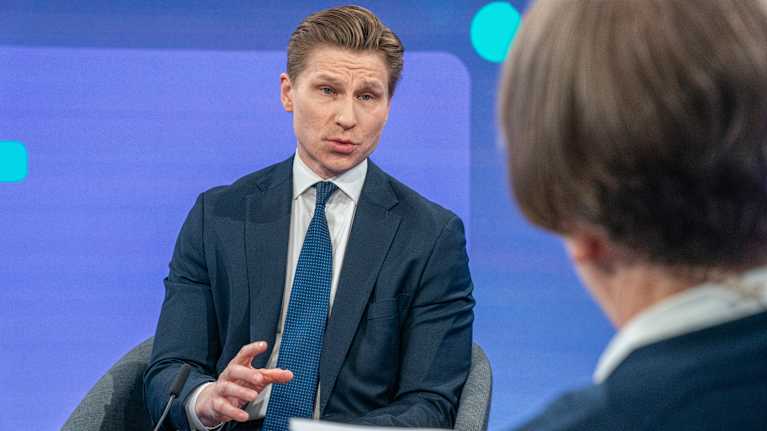Finland has been named to lead an EU project on the use of quantum technology for defence purposes, the Ministry of Defence said on Friday.
This includes quantum computers, which are still under development but could be vastly more powerful and rapid than standard computers.
The EU venture, which was proposed by Finland, is dubbed Quantum Enablers for Strategic Advantage (Quest). It was unveiled as part of the latest set of 11 projects under the EU’s Permanent Structured Cooperation (Pesco) programme.
According to the ministry, the project has aroused the broadest interest of the 11 new EU ventures, noting that Russia’s attack on Ukraine has shown how crucial such capabilities are for defence.
Joining Finland on the project will be Germany, Denmark, Latvia and Italy, with Sweden, Greece and the Netherlands as observers.
"Finland has cutting-edge expertise in quantum technology, and we have one of the most advanced quantum technology ecosystems," Defence Minister Antti Häkkänen (NCP) said in a statement on Friday.
Technology still in its infancy
Markus Holmgren, a research fellow and expert in digital security architecture at the Finnish Institute of International Affairs, points out that the technology is still in its infancy.
"Quantum computing has not so far produced any useful solutions that would give an advantage compared to classical computing," he told Yle News on Friday.
"Basically only quantum sensory and metrology sciences have brought tangible benefits so far, and some of those solutions are older than one might think," he added.
"The promise, however, is so great that the technologies are already influencing power politics. We can expect revolutionary benefits from quantum computers, which is the reason the field is growing so fast and with such political involvement," said Holmgren.
"Nearing battlefield relevance"
The main focus areas will be how quantum technology can be used in positioning, territorial surveillance and air and missile defence, aiming to strengthen Europe’s defence capabilities.
On Wednesday, the US Defense Intelligence Agency warned that "quantum technologies are nearing battlefield relevance, as rival nations invest in quantum sensors, communications and computing".
It noted that future quantum computers could be used as encryption-breaking machines, as China and Russia have unveiled new higher-performance quantum computers that could locate submarines or underground structures in environments where GPS signals are weak or blocked.
The use of quantum technology sensors and measuring devices will be a key focus of the EU project.
US officials proposed Nato quantum tech centre in Finland
The project will be led in cooperation between the Finnish defence administration and the VTT Technical Research Centre of Finland. So far no details have been revealed about the project’s budget or practical implementation.
"We’re taking the use of quantum technologies as part of the defence capabilities extremely seriously. The Quest project to be implemented together with our European partners will create a solid foundation for the application of quantum technology for defence," Häkkänen said on Friday.
Last summer, Häkkänen downplayed a suggestion by US Senator Lindsey Graham and then-US Ambassador to Finland, Douglas Hickey, that Finland should be the site of a Nato research centre on quantum technology and artificial intelligence.
Earlier last year, the Defence Ministry announced that Finland would host two Nato test centres for new technologies and a business accelerator, also in partnership with VTT. The University of Helsinki is also involved in a Nato project that supports small businesses developing quantum technology.
Häkkänen made his comments before taking part in the Shangri-la Dialogue security conference in Singapore on Friday and Saturday. Officials from 47 countries are attending, including French President Emmanuel Macron. Next Wednesday, Häkkänen heads to Brussels for a meeting of Nato defence ministers.
